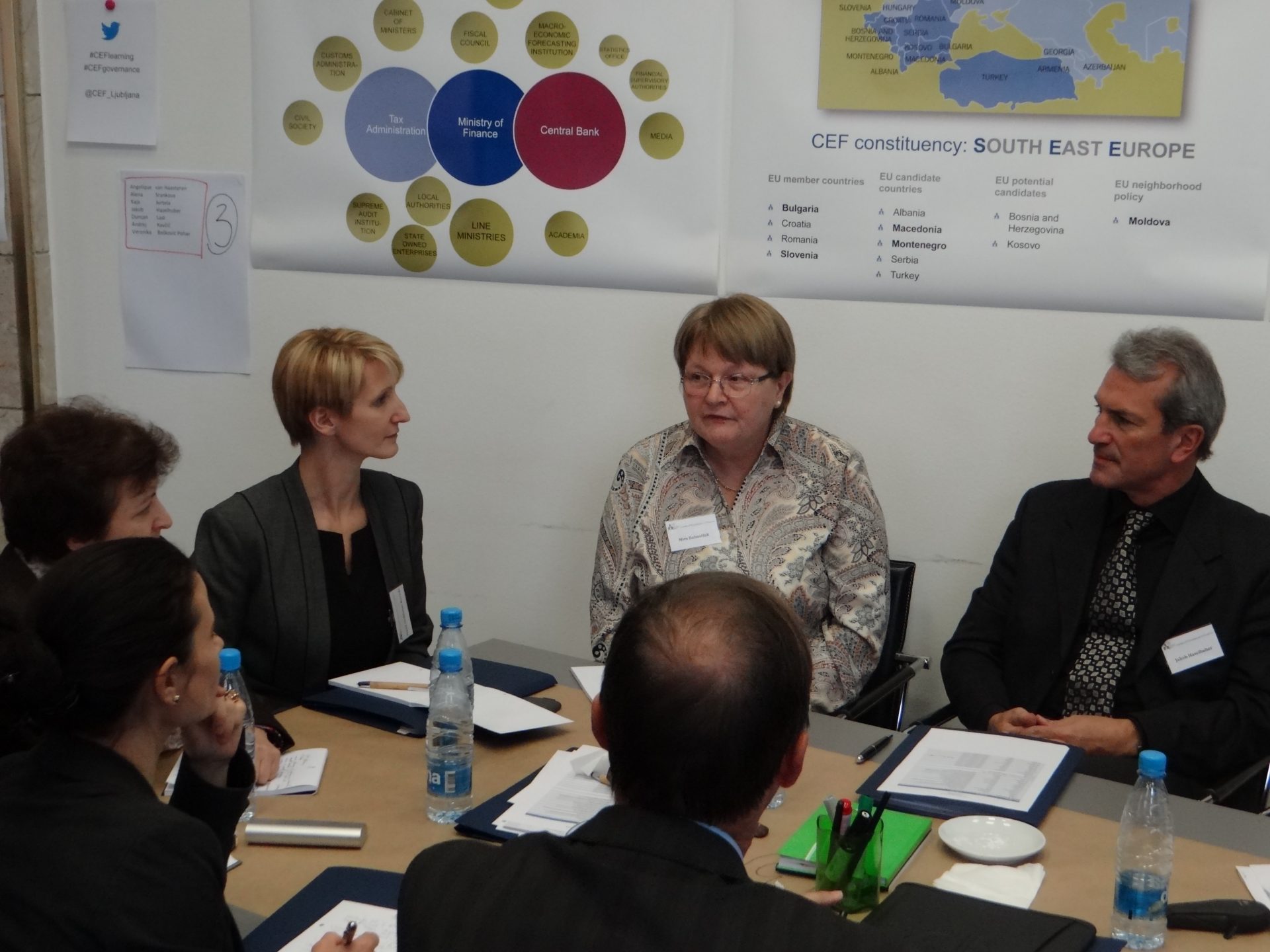The Public Finance for Development programme is grounded in a long-running cooperation between the UNDP and the Slovak Republic in general, and the Ministry of Finance of the Slovak Republic in particular. The joint initiative is an example of an inclusive development partnership which leverages the knowledge and technical expertise of a newly established donor like Slovakia, along with the wide reach, global context, and presence of an experienced international organization.

UNDP and Slovakia: Since 2000, the UNDP has been cooperating with the so-called new EU member states as emerging donors through RBEC – UNDP Regional Bureau for Europe and the Commonwealth of Independent States. The Bureau was initially seated in Bratislava and moved to Istanbul in 2014, thus creating a so-called Istanbul Regional Hub. RBEC provides partners with years-long experience and knowledge in development cooperation, tools and processes, a thorough knowledge of the local environment, and an extensive network of country offices. UNDP’s partnership with the Slovak Republic (established in 2002), is the oldest initiative of this kind in the region.
The cooperation was originally based on three pillars: support for building the system of official development assistance for the Slovak Republic, capacity building through the Slovak-UNDP Trust Fund, and support for public finance management reforms in partner countries through the Public and Private Finance for Development programme. The Ministry of Foreign and European Affairs of the Slovak Republic and the Ministry of Finance of the Slovak Republic are the main partners.
UNDP and MF SR: The Public Finance for Development Programme has been implemented since 2009 as part of Slovakia’s official development assistance. It is the fruit of the Ministry of Finance of the Slovak Republic – UNDP partnership, and contributes to sound public finance management and good governance in partner countries. More about the programme can be found here.
Since 2017, the UNDP – MF SR partnership has also been extended, in addition to the support for public finance management, to bolster private sector engagement in development cooperation.
Within the multilateral development cooperation framework, the Ministry of Finance of the Slovak Republic provides contributions to international institutions; it has also developed a system of statistical reporting of development cooperation in the Slovak Republic. More information is available here.

The story of Slovakia transformation
From the 1990s to the beginning of the 2000s, Slovakia underwent a profound political and economic transformation: from a single-party state-socialist regime to a pluralist participatory democracy, and from a centrally-planned economy to an open-market economy. Extensive and profound reforms were needed to go through this transition, and increasing the effectiveness of public finance management was a key component of the process.
Legislative, institutional and procedural changes had to be made across public administration. Central and local government relations and competences were rearranged through the process of fiscal decentralisation. Among other things, public finance transparency and accountability has improved, the accuracy and quality of public finance reporting has increased, and cash accounting has been complemented by an accrual-based approach.
Special institutions, such as the State Treasury, and the Agency for Debt and Liquidity Management were set up. The strategic allocation of resources was strengthened through results-focused modernized budgeting. The Macroeconomic and Fiscal Forecasting Unit was established at the MF SR to prepare a realistic medium-term fiscal framework. Later, the Value for Money Department was established (UHP,) which looks for ways to spend taxpayers’ limited resources in the best possible manner in order to reach their goal. The tax system was simplified and tax collection has improved. The fight against tax evasion and avoidance has also been stepped up. Slovakia succeeded in enhancing personnel skills, and streamlining institutional structures, procedures and decision-making mechanisms.
Public finance reform, historically regarded as one of the most successful areas in Slovakia’s economic transition, had a direct influence over the country´s fiscal consolidation, macroeconomic stability and economic growth. This is proven by the fact that Slovakia was able to meet the Maastricht public deficit and debt criteria for its entry into the Euro Area in January 2009.
Slovakia today
Today, as a member of the European Union and the Eurozone, Slovakia continues to further improve its Public Financial Management processes. Given the experience in this field, Slovakia has made Public Financial Management one of the key areas of its development cooperation and uses its know-how to help other countries.

